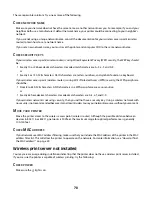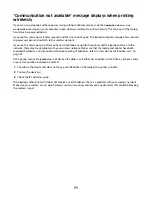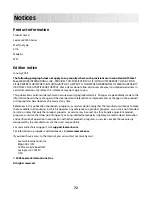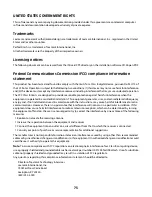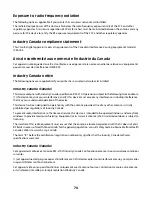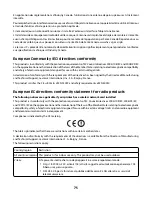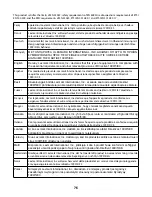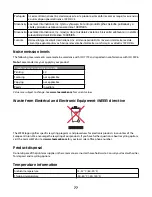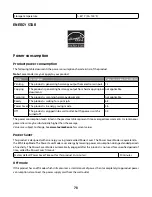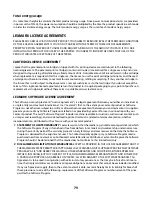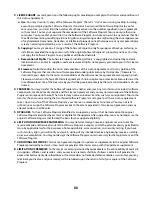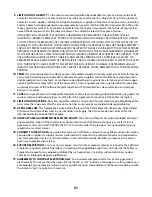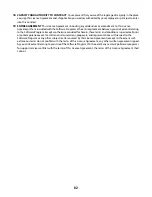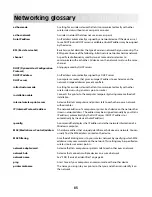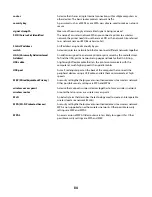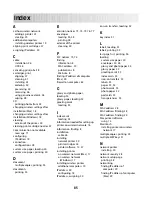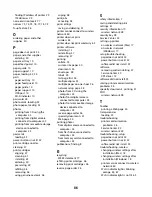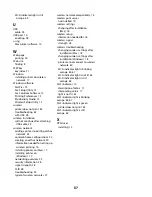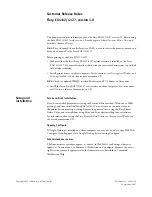
router
A device that shares a single Internet connection with multiple computers or
other devices. The basic router controls network traffic.
security key
A password, such as a WEP key or a WPA pass phrase, used to make a network
secure
signal strength
Measure of how strongly a transmitted signal is being received
SSID (Service Set Identifier)
The name of a wireless network. When you connect a printer to a wireless
network, the printer needs to use the same SSID as the network. Also referred
to as network name or BSS (Basic Service Set).
Static IP address
An IP address assigned manually by you
switch
A device similar to a network hub that can connect different networks together
UAA (Universally Administered
Address)
An address assigned to a network printer or print server by the manufacturer.
To find the UAA, print a network setup page and look for the UAA listing.
USB cable
A lightweight, flexible cable that lets the printer communicate with the
computer at much higher speeds than parallel cables
USB port
A small, rectangular port on the back of the computer that connects the
peripheral devices using a USB cable, and lets them communicate at high
speeds
WEP (Wired Equivalent Privacy)
A security setting that helps prevent unauthorized access to a wireless network.
Other possible security settings are WPA and WPA2.
wireless access point
A device that connects wireless devices together to form a wireless network
wireless router
A router that also serves as a wireless access point
Wi-Fi
An industry term that describes the technology used to create an interoperable
wireless local area network (WLAN).
WPA (Wi-Fi Protected Access)
A security setting that helps prevent unauthorized access to a wireless network.
WPA is not supported on ad hoc wireless networks. Other possible security
settings are WEP and WPA2.
WPA2
A newer version of WPA. Older routers are less likely to support this. Other
possible security settings are WPA and WEP.
84

